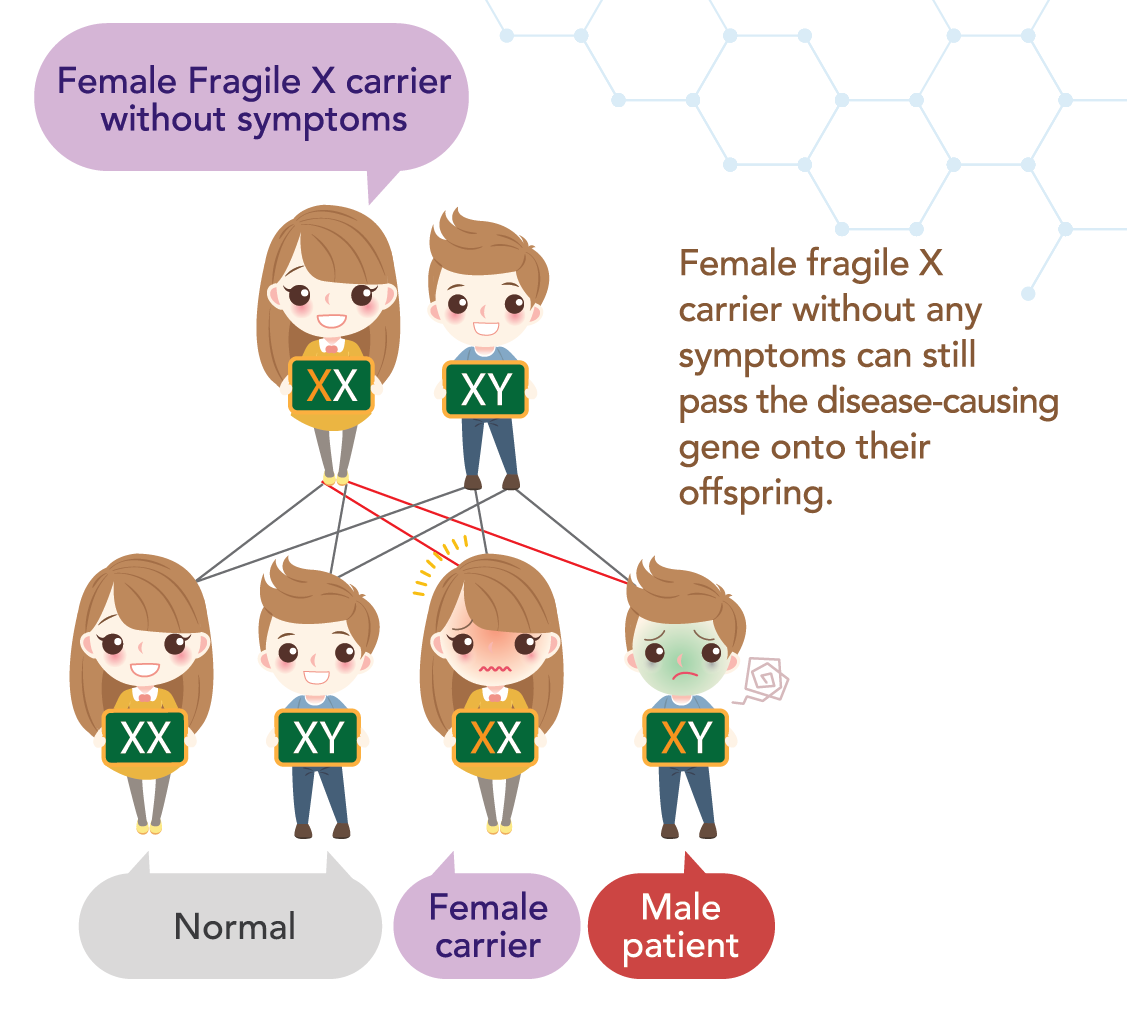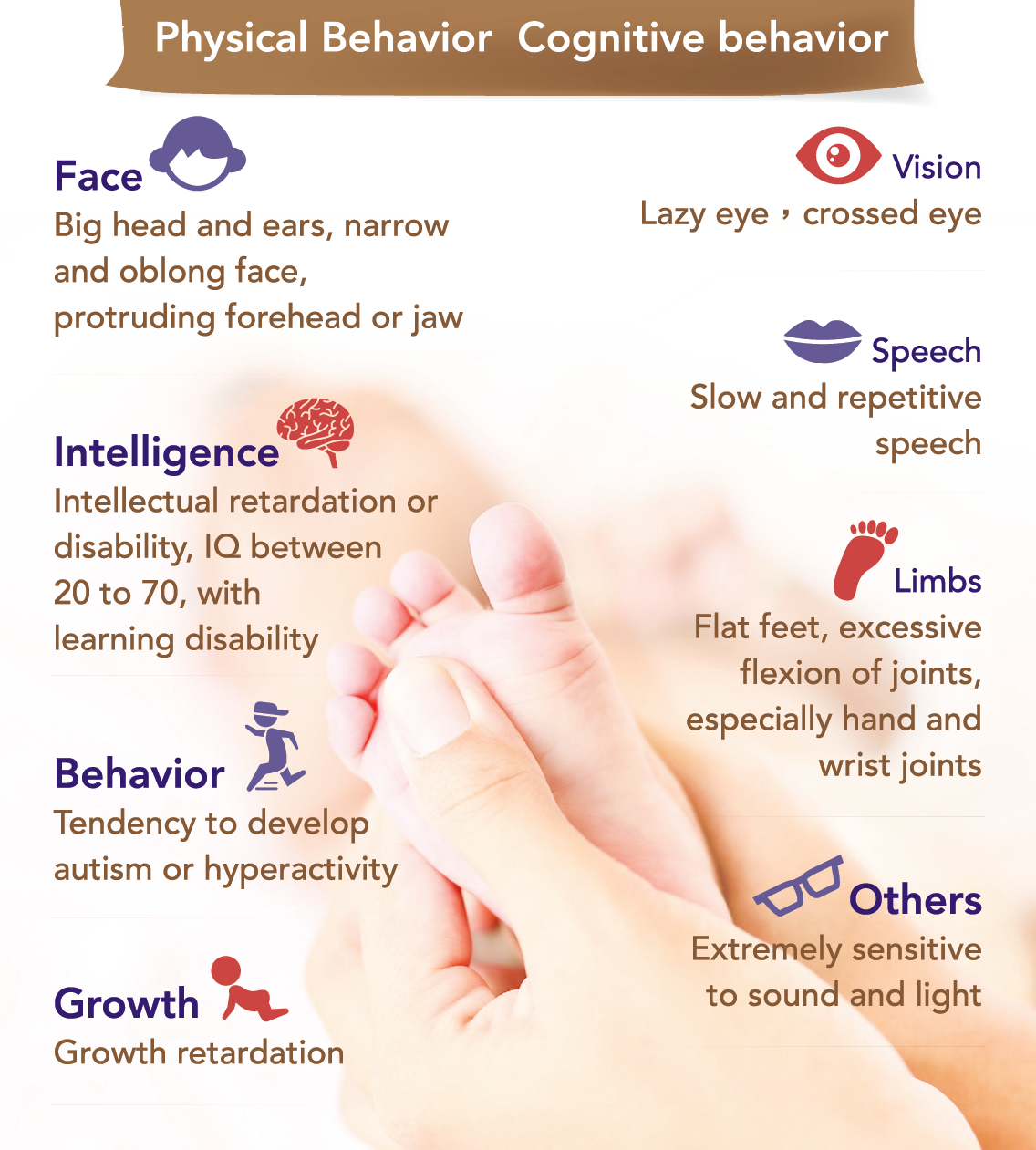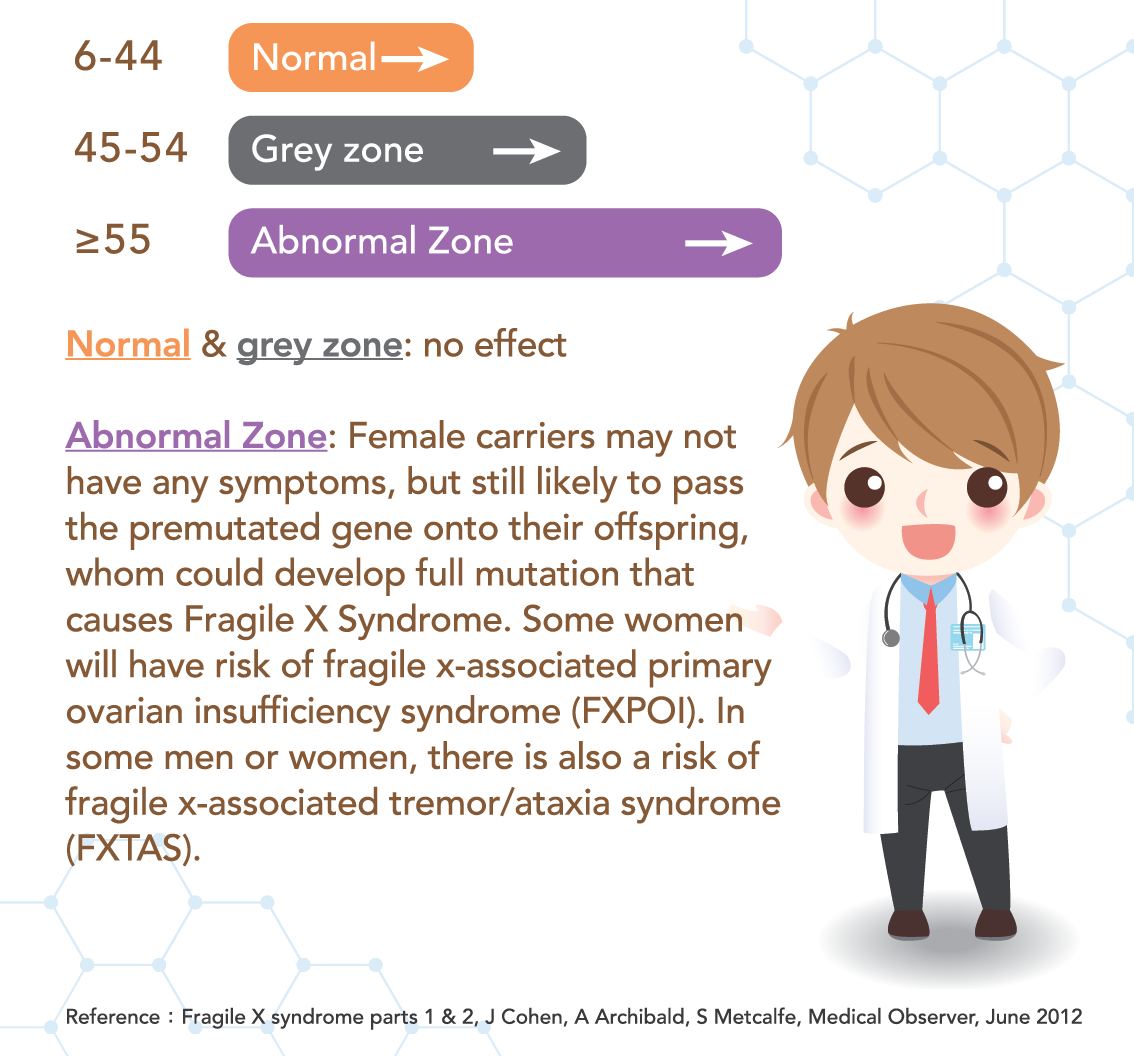Fragile X Carrier Screening Test (AFE)Back
Understand early the possibility of your next generation suffering from Fragile X-related autism, hyperactivity, intellectual disability and speech disorder
What is Fragile X Syndrome?
Fragile X Syndrome (FXS) is a genetic disease due to a problem of the FMR1 gene on X chromosome, leading to over-repetition of the fragment "CGG". The more the CGG repeats, the severer the disease.
Why to do Fragile X Carrier Screening Test?
- High morbidity, resulting in low intelligence
- A lifelong disease, not curable
- Risk increases with maternal age
- High number of asymptomatic female carriers
- Higher rate of transmission to male than female
Fragile X carrier can pass the disease-causing gene to offspring

Common symptoms of Fragile X Syndrome
Fragile X Syndrome can impair mental development and cause a series of physical and cognitive abnormalities. Men are more likely to develop Fragile X than women. If affected, the symptoms are also more serious than those on women.

CGG repeat ranges in FMR1 gene

Who is suitable for?
- Women who are pregnant or planning to be pregnant
- Individuals with a family history of fragile X syndrome, autism, ovarian failure or early menopause
- Individuals with a family history of intellectual disability, development problems or slow growth
- Individuals with a family history of late-onset tremor symptoms
Fragile X syndrome screening process
- Collect 6 ml of blood / 10 pcs of buccal swab
- For blood draw: Report issue within 1 working day
- For buccal swab: Report issue within 3-5 working days

Understand early the possibility of your next generation suffering from Fragile X-related autism, hyperactivity, intellectual disability and speech disorder
What is Fragile X Syndrome?
Fragile X Syndrome (FXS) is a genetic disease due to a problem of the FMR1 gene on X chromosome, leading to over-repetition of the fragment "CGG". The more the CGG repeats, the severer the disease.
Why to do Fragile X Carrier Screening Test?
- High morbidity, resulting in low intelligence
- A lifelong disease, not curable
- Risk increases with maternal age
- High number of asymptomatic female carriers
- Higher rate of transmission to male than female
Fragile X carrier can pass the disease-causing gene to offspring

Common symptoms of Fragile X Syndrome
Fragile X Syndrome can impair mental development and cause a series of physical and cognitive abnormalities. Men are more likely to develop Fragile X than women. If affected, the symptoms are also more serious than those on women.

CGG repeat ranges in FMR1 gene

Who is suitable for?
- Women who are pregnant or planning to be pregnant
- Individuals with a family history of fragile X syndrome, autism, ovarian failure or early menopause
- Individuals with a family history of intellectual disability, development problems or slow growth
- Individuals with a family history of late-onset tremor symptoms
Fragile X syndrome screening process
- Collect 6 ml of blood / 10 pcs of buccal swab
- For blood draw: Report issue within 1 working day
- For buccal swab: Report issue within 3-5 working days
Fragile X Carrier Screening Test (AFE) Service Procedure Q&A
The principle of Fragile X Carrier Screening Test (AFE)
This screening genetic test is to detect whether the CGG repeat number of the FMR1 gene is abnormal by analyzing PCR amplified gene fragments.
Service Procedure
PART 1 : Contact your physician or your clinic
PART 2 : Draw sample from the clinic
PART 3 : Receive Report
PART 4 : Once the report is ready, the clinic will inform you to collect your report. If you need report counselling service, please contact the clinic.
Q&A
QWho needs fragile X syndrome testing?
- If the family has a history of tremor symptoms after 50 years old
- If there's family history of autism
- If the family has a history of intellectual development problems or slow growth
- If the family has history of fragile X syndrome
- If the family has a history of ovarian failure or early menopause
- If you are concerned about the possibility of your children inheriting fragile X syndrome (being a mother / prospective mother)
** In addition to the prospective mothers who want to take the fragile X carrier test to protect the health of their next generation, it can also be suitable for all pregnant women, as part of the prenatal check.
QI have no obvious symptoms, why do I need to conduct Fragile X syndrome test?
-
- Even if women show no symptoms, they may still be carriers, and have chance to pass mutated gene towards their next generation.
- If you give birth to a girl, she has chance to become a fragile X syndrome carrier. If you give birth to a boy, he has chance of being a fragile X syndrome patient.
QUnder what circumstances can this genetic test not be done?
If the subject has undergone organ transplantation, they cannot accept this test. (DiagCor will not accept this sample for testing)
QWhat do I need to prepare for the Fragile X Syndrome Test (AFE), do I need an empty stomach?
No special preparation is required, no fasting.



